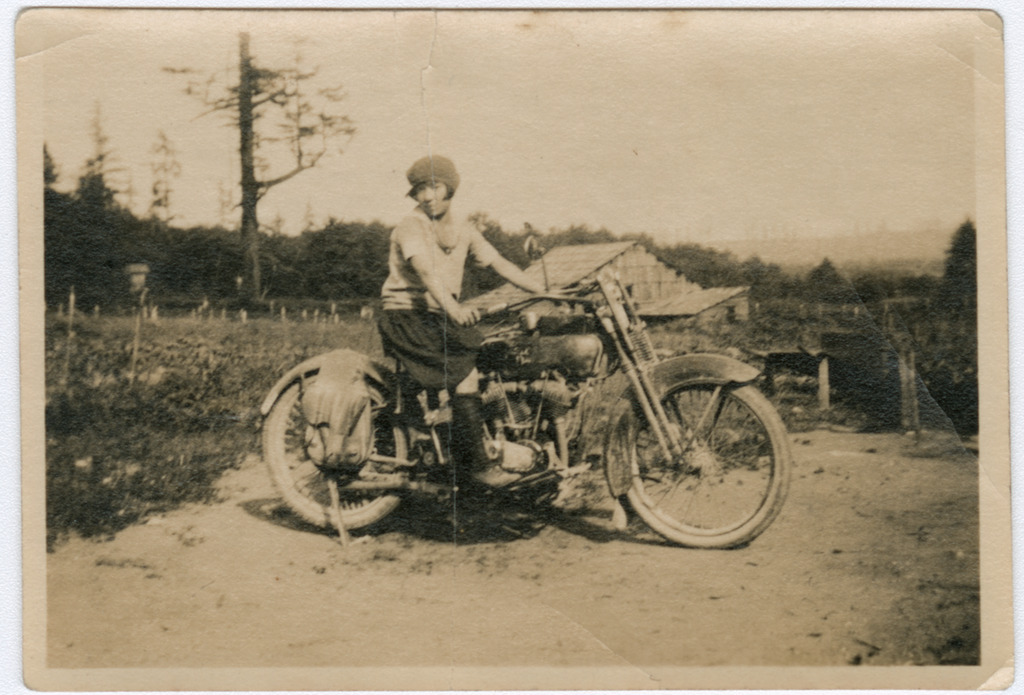March 7, 2022
This Women’s History Month, we asked writers to submit short responses to photographs of women in the Densho archives or in their own family collections. Today’s submission comes from Nikiko Masumoto (she/her), an organic farmer, memory keeper, and artist, who writes to a “Nikkei warrior motorcycle girl” and wonders about the “seeds of freedom” she left behind.
How to Wonder

I arbitrarily clicked a file link and your image exploded onto my screen. In a flash of sepia tone circa 1920, you exposed the limitations of my own imagination. And I thought I was a feminist. Nikkei warrior motorcycle girl, you look like me, or my auntie, or my baachan, or my cousin, or my imagined daughter. Sitting relaxed, I know this isn’t your first ride. Your booted foot is at ease on the pedal, your arms extended forward and ahead, ready to take flight on dusty backroads into silence and your own fortress of wonder. I can tell you know the country. Wide open spaces do not scare you; you know how to kick start an engine, how to find your way home before dark without maps, how to keep demons at bay. I wonder if I know you, or where you have gone today. How many seeds of freedom did you plant along the open road before you had to make do in prison camps? How can I honor your fierceness? To whom can I convey my gratitude for capturing your stance so that I may remember what it’s like to feel free?
—
Nikiko Masumoto is a fourth generation Japanese American, and gets to touch the same soil her great-grandparents worked in California where Masumoto Family Farm grows organic nectarines, apricots, peaches and grapes for raisins. With her family, she’s co-authored two books: Changing Season and The Perfect Peach.
Read the rest of this series:
Brynn Saito, “What Exists Outside the Frame”
Karen L. Ishizuka, “Why, Oh Archive?”
